What to do if you have a trip planned for Hawaii
Editor's note: This post was updated with new information.
Maui was hit hard by devastating wildfires fueled by hurricane-force winds. The fires caused catastrophic damage. Heartbreakingly, they are the deadliest the U.S. has experienced in many years.
The worst fires occurred in West Maui, as the historic area of Lahaina was completely destroyed by flames that are still only 90% contained. According to the Maui Emergency Management Agency's most recent alert Monday, a fire in the Upcountry area of Kula is still only 85% contained.
President Joe Biden signed an emergency disaster declaration for the state of Hawaii, and the Federal Emergency Management Agency is coordinating recovery operations. On Monday, the president and Jill Biden traveled to Maui to survey the damage firsthand.
During the president's visit and joint press conference, Hawaii Gov. Josh Green again addressed the growing community concern about ensuring the economic well-being of Maui and the state, emphasizing the importance of travel.
"No one can travel to West Maui right now. We will share when that is possible again. Only returning residents and authorized emergency relief workers should come here now. But all of the other areas of Maui ... and the rest of Hawai'i are safe," Green said. "When you come, you will support our local economy and help speed the recovery of the people that are suffering right now."
A statement from the Hawaii Tourism Authority said that Green's sixth emergency proclamation, issued Aug. 19, remains in place, with all nonessential travel to West Maui being strongly discouraged for the duration of the proclamation (through Oct. 17).
Daily update videos on the disaster recovery are also being posted to the governor's Facebook page.
Given Maui's popularity as a vacation destination, numerous would-be tourists likely have upcoming trips scheduled. Given the scale of the disaster on the island, they now need to make some decisions about their upcoming plans to visit to allow the island to focus on recovery efforts.

Here's what to know if you have an upcoming trip to Maui.
Is it safe to travel to Maui right now?
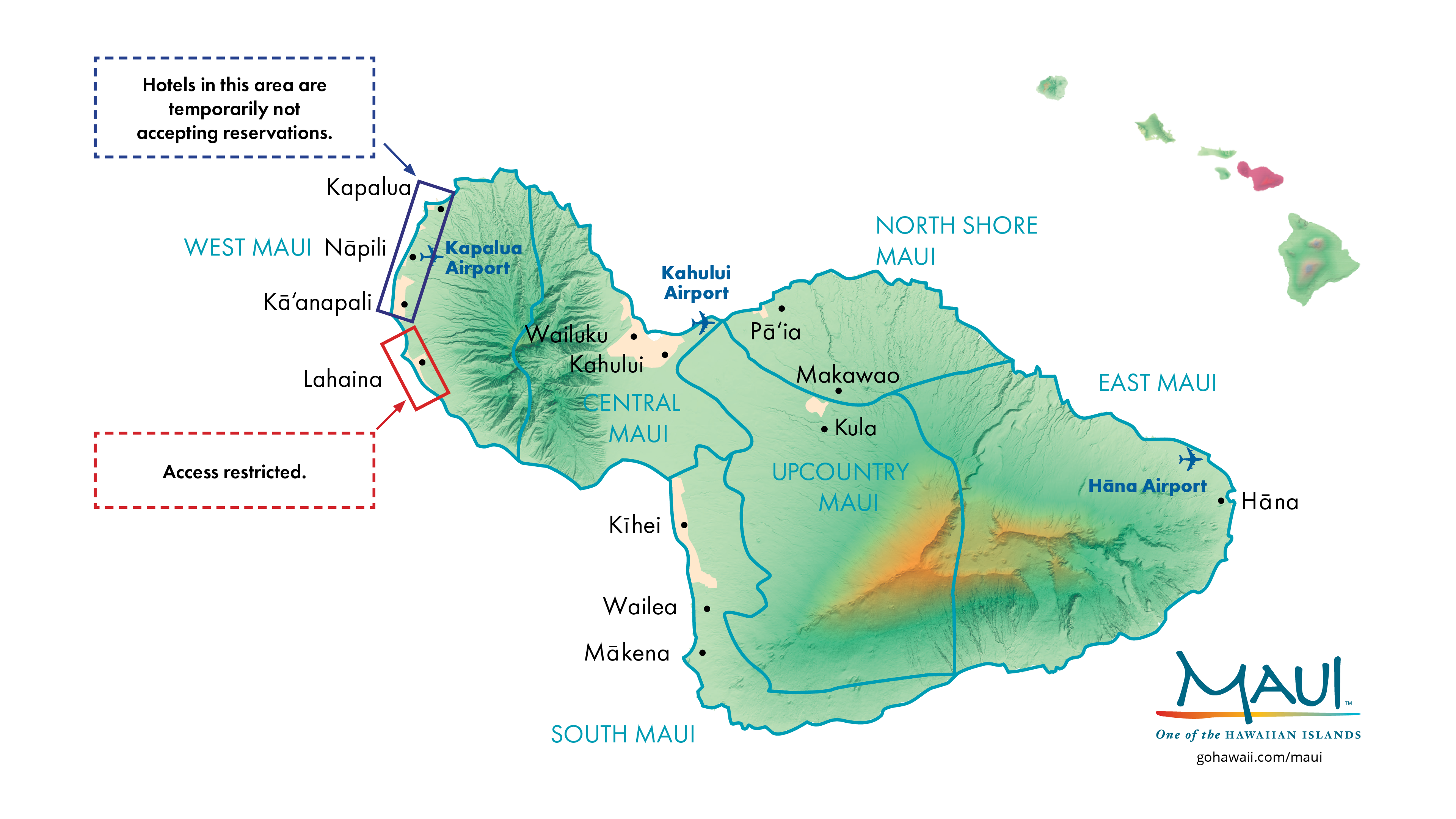
It is currently not safe to travel to West Maui due to the multiple uncontained wildfires and evacuation orders that are in place.
Still, the governor has declared other areas of Maui safe and open for travel.
The Hawaii Tourism Authority released an updated travel advisory after Green's press conference, along with a map of the affected and restricted areas.
In alignment with Governor Green, the Hawai'i Tourism Authority urges visitors to refrain from going to West Maui (including Lahaina, Nāpili, Kāʻanapali, and Kapalua) as a means of respect to the people and places that have been lost in Lahaina during this devastating tragedy. The impacted area of Lahaina remains off limits to the public as the search and recovery efforts continue.
We encourage travelers to consider visiting other areas of Maui (including Kahului, Wailuku, Kīhei, Wailea, Mākena, Pāʻia and Hāna), as well as the other Hawaiian Islands of Kauaʻi, Oʻahu, Lānaʻi, Molokaʻi and Hawaiʻi Island.
Even when it is safe to travel to West Maui again, that part of the island will have limited resources and infrastructure.
Residents and visitors with upcoming travel bookings are encouraged to check with their airline for any flight changes and cancellations, or assistance with rebooking.
When might it be OK to travel to Maui?
At this time, it is unclear when West Maui will reopen, but the devastation to historic Lahaina is very substantial. As a result, disaster recovery operations will likely be very lengthy.
The Hawaii Tourism Authority released a statement last week that included a section devoted to common questions and answers and appears to be updated on a regular basis.
At this time, hotels in West Maui have temporarily stopped accepting bookings of future reservations and are housing their employees and families, evacuees, and first responders working on disaster recovery – well over 1,000 people so far with more to come.
Other areas on Maui (including Kahului, Wailuku, Kīhei, Wailea, Mākena, Pāʻia and Hāna), as well as the other Hawaiian Islands of Kauaʻi, Oʻahu, Lānaʻi, Molokaʻi and Hawaiʻi Island remain unaffected. We urge visitors to be especially mindful and respectful in our island home as our community continues through this tragedy.
Based on the updated information shared by the governor and the statement released by the Hawaii Tourism Authority, they are encouraging travelers to consider visiting other areas of Maui. Such areas include Kahului, Wailuku, Kihei, Wailea, Makena, Paia and Hana.
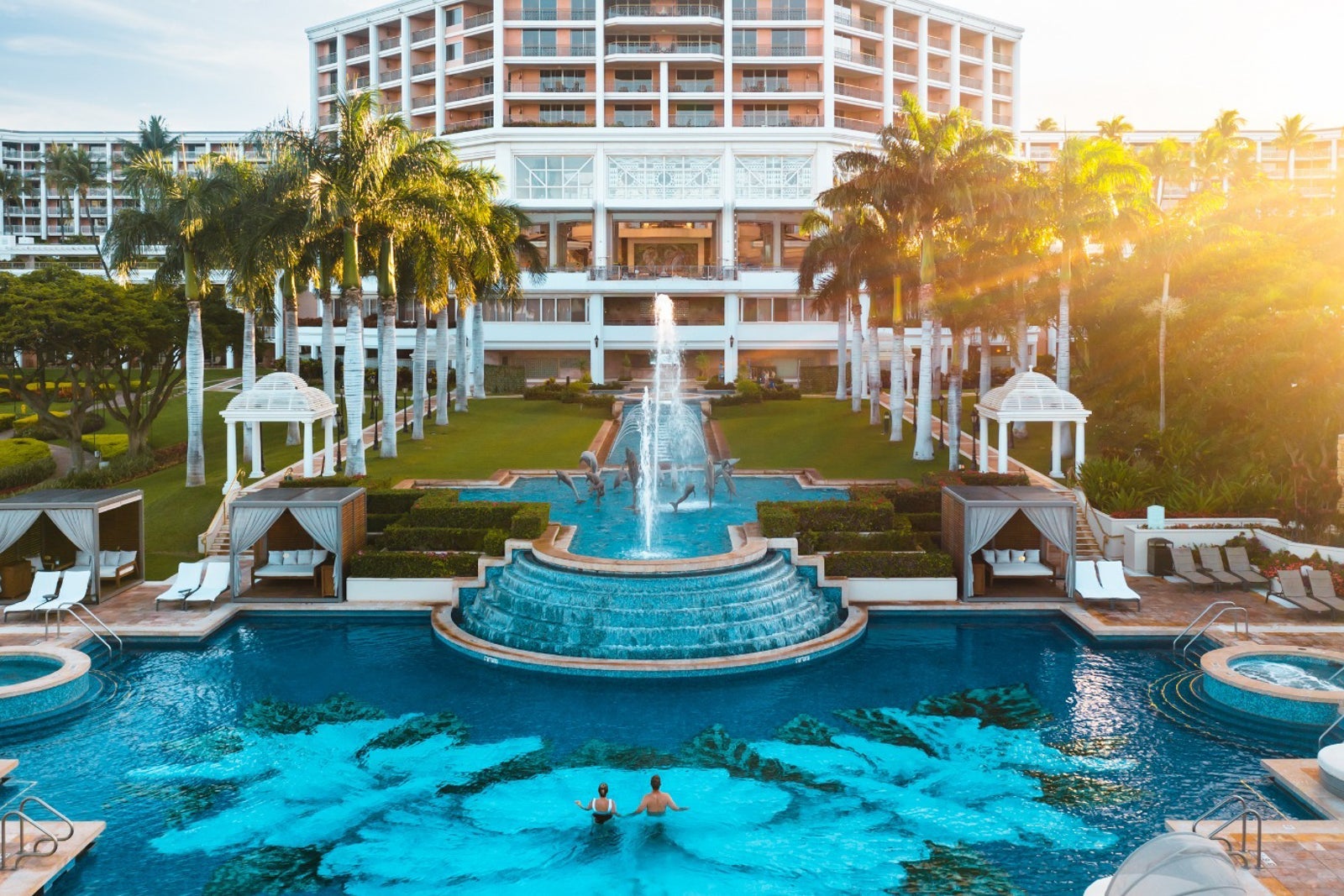
Some hotels in other parts of the island, such as the Grand Wailea, a Waldorf Astoria Resort, have posted regularly updated statements on their websites.
It has been over a week now since wildfires decimated the historic town of Lahaina. Disaster recovery efforts are ongoing in West Maui, and supplies are flowing into the affected areas on a regular basis. And while the restoration of the land and community will take years, we know that Maui's tight-knit community will get through this together. We are grateful that the Wailea region of South Maui was not impacted and that all of our team members are safe and accounted for. Grand Wailea continues to welcome guests with aloha.
As we look toward the future of our island, it is more important now than ever that guests and groups continue to visit Maui. In a statement, the HLTA [Hawaii Lodging & Tourism Association] noted, "Yes, we must be sensitive to the plight of those suffering from the wildfires. But bear in mind that so many of the victims and their families depend on the visitor industry for their jobs and futures. While they may have lost their homes and more, losing their incomes would only add to the pain and hardship of their situation. That's why it's important to keep tourism functioning to keep our economy alive and give our people hope and the ability to rebuild their lives." Governor Green shared in his daily briefing that, "what we're saying now is travel should not be to West Maui. But the other parts of Maui are safe."
Is it safe to travel to the other Hawaiian islands of Kauai, Oahu, Molokai, Lanai and Hawaii?
Travel to the islands of Kauai, Oahu, Molokai and Lanai and parts of the Big Island is not affected at this time in terms of safety. However, there may be some near-term capacity issues with so many tourists trying to relocate from Maui and even Maui residents seeking shelter on the other islands.
If you have a trip planned to another Hawaiian island, operations are likely currently unaffected. However, contact your hotel or check its website or social media channels for any updates should the situation change.
Additionally, be aware that while statements from officials say other Hawaiian islands are open and available for tourism, there is a sentiment among some Hawaiian residents that now may not be the time to vacation in the state. The area is grappling with this tragedy and working to support Maui with the resources and infrastructure that it needs.
Airlines allowing changes to Maui flights
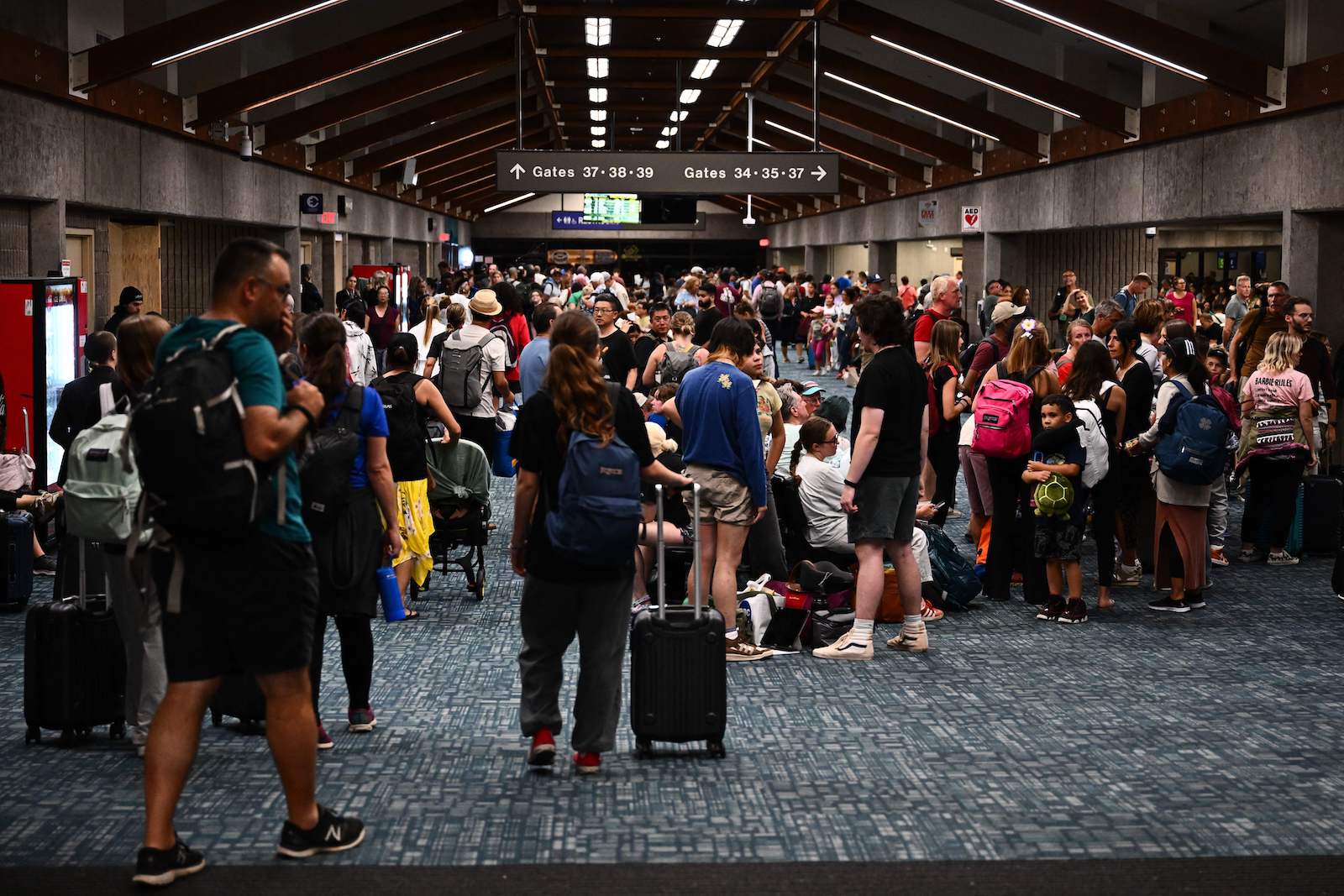
A previous update from the Hawaii Tourism Authority stated that 46,000 residents and visitors have already been flown off the island since the fires began. If you have a flight to Maui booked in August or September that you wish to change, you are encouraged to contact your airline and revise your travel plans if needed. The airlines have all updated their travel waiver policies, with some extending dates into September or November.
Alaska Airlines
Alaska Airlines has instituted a flexible travel policy for guests who would like to change or cancel flights to or from Maui. Currently, it is processing changes if your ticket was purchased prior to Aug. 11 and your plans are between now and Sept. 16.
American Airlines
American Airlines passengers can change their origin or destination to Daniel K. Inouye International Airport (HNL), Ellison Onizuka Kona International Airport (KOA) or Lihue Airport (LIH) at no cost for tickets bought by Aug. 9 for travel originally scheduled through Sept. 16.
New flights must be booked for travel by Nov. 18 for the same cabin. Alternatively, passengers can cancel their originally scheduled trips and request a refund. This only applies to flight changes made by Sept. 16 for travel completed within one year of the original ticket date.
Delta Air Lines
Delta Air Lines has issued a change policy specific to flights in or out of OGG, HNL, KOA, LIH.
The fare difference will be waived when rebooked travel occurs on or before Nov. 18 in the same cabin of service as originally booked. A fare difference may apply when the waiver is class-to-class restrictive and the original booking class is not maintained in the rebooked itinerary. There are additional conditions and restrictions listed as well.
Hawaiian Airlines
Hawaiian Airlines travelers can reschedule their flights at no cost for flights in and out of OGG between Aug. 9 and Dec. 15 to new dates. There will be no change fees or fare differences on the same city pair and the same cabin of service.
Tickets can be booked for new travel to or from the following airports: OGG, Ellison Onizuka Kona International Airport (KOA), Hilo International Airport (ITO), Daniel K. Inouye International Airport (HNL) and Lihue Airport (LIH). However, tickets must be rebooked into the same compartment (Main Cabin or Business Cabin) by Sept. 1; travel must occur between Aug. 9 and Nov. 16 or between Nov. 29 and Dec. 15. The airline notes that itineraries with travel outside these periods would not be eligible for a waiver of a fare difference.
Alternatively, these travelers can cancel their flights in exchange for a future flight credit, expiring one year from the original date of purchase. Those with flights booked to or from OGG between Aug. 9 and Sept. 15 can also request a refund. The request must be submitted by Sept. 1.
Southwest Airlines
Southwest Airlines customers with reservations to, from or through OGG between Aug. 9 and Oct. 17 can rebook in the original class of service or travel standby for free; this is as long as the new travel falls within 14 days of the original date of travel between the original city pairs.
Additionally, these customers can change their original departure or arrival flight to any of the below Hawaii airports without charge:
- ITO
- HNL
- KOA
- LIH
United Airlines
United Airlines is allowing travelers to reschedule trips and will waive change fees and fare differences for trips originally scheduled into Maui through Sept. 16. You can then alter your plans to travel by Nov. 18 at no additional cost to one of these airports:
- HNL
- KOA
- LIH
If your new trip is after August 10, 2024, or is to a different destination, United will still waive any change fees, but you might have to pay a fare difference depending on the flight. Alternatively, if you cancel or don't take your trip, you can request a full refund.
What to do if you have a hotel or an Airbnb booked in Maui
Most of West Maui is still without power and has limited phone service, so you may not be able to contact your hotel directly to cancel your reservation. It is recommended to call the central reservations number for your hotel company. If you are unable to reach the hotel, your next best option is to monitor your specific hotel's social media channels and websites for any updates.
According to the latest statement released by the Hawaii Tourism Authority, hotels in West Maui have temporarily stopped accepting bookings of future reservations. Hotels are being used to house their employees and families, evacuees and first responders working on disaster recovery — more than 1,000 people so far, with more to come.
Additionally, vacation rental owners and operators and anyone with available space are encouraged to make these accommodations available to temporarily house displaced West Maui residents. Since Aug. 14, the state has offered a referral program to make those connections possible to support West Maui residents in need of housing, according to the Hawaii Tourism Authority statement.
Hotels in the Kaanapali area have now updated their websites with further guidance. The Sheraton Maui Resort & Spa added an alert that the hotel is temporarily closed and that cancellation fees will be waived through Sept. 15. The Hyatt Vacation Club at Ka'anapali Beach posted that all reservations through Sept. 3 have been canceled, and the hotel is allowing guests beyond that date to cancel or reschedule by contacting them. Any deposits and prepayments for canceled stays between now and Sept. 30 will be refunded.
If you booked a chain hotel directly, you can work with the corporate 1-800 number to alter your plans. If you booked through a third-party online travel agency or aggregator like Expedia or Travelocity, it's important to understand the cancellation policy. The OTA still owns your reservation prior to your travel, so contacting the hotel directly will likely result in you being referred back to the OTA or travel portal for assistance.
For those travelers who booked accommodations with Airbnb, the company has activated its "Extenuating Circumstances Policy" for parts of Maui. Eligible guests with reservations will receive a full refund, and both hosts and guests can cancel bookings penalty-free, the company said on Wednesday.
Will your credit card or trip insurance cover changes?
Generally, trip cancellation and trip interruption insurance will cover nonrefundable expenses, such as airfare, accommodation and activities, if you need to cancel your trip (or the remainder of your trip) due to a natural disaster like the wildfires. However, credit card insurance policies can vary, so check the benefits guide for the card you used to book your airfare for specific exclusions.
Also, note that you must have booked your trip before the natural disaster starts in order to be covered. This means that if you booked a new trip today, it likely wouldn't be covered due to the wildfires already being labeled a declared emergency.
If you need to file a trip cancellation or interruption claim:
- Check your credit card's benefits guide to see if you are eligible for coverage and what the limits are.
- Call your credit card's benefits administrator, or start a claim online.
- Determine which documents you need to collect.
- Submit the documents within the required timeline.
"Many travel insurance policies can cover travelers who need to cancel or interrupt their trip due to a natural disaster, such as the Hawaii wildfires," Steven Benna, marketing manager for Squaremouth Travel Insurance, told TPG. "This can include cancellation coverage for travelers who are unable to travel because their destination is uninhabitable or under a mandatory evacuation due to the fires, as well as interruption coverage for travelers whose trips are cut short."
"However, travel insurance is designed to cover unforeseen events," he added. "In order for coverage to be available, the traveler must have bought their policy before the fires began."
Depending on the needs of your trip, sites like InsureMyTrip and Squaremouth allow you to shop for plans that may fit your travel needs and compare coverage and pricing for multiple policy options at once.
Various membership associations, such as USAA, AAA and Costco, also offer travel insurance policies for purchase. Typically, these organizations partner with a specific provider, so you may want to compare the policies offered through the organization with other policies to get the best coverage for any future trips.
There's also a type of coverage referred to as "cancel for any reason" coverage. You might only get 75% of the trip cost back, so depending on the trip, it might not be worth the hefty premium.
Related: 4 times your credit card's travel insurance can help with travel woes, and 7 times it won't
What to do if you have a cruise to Hawaii
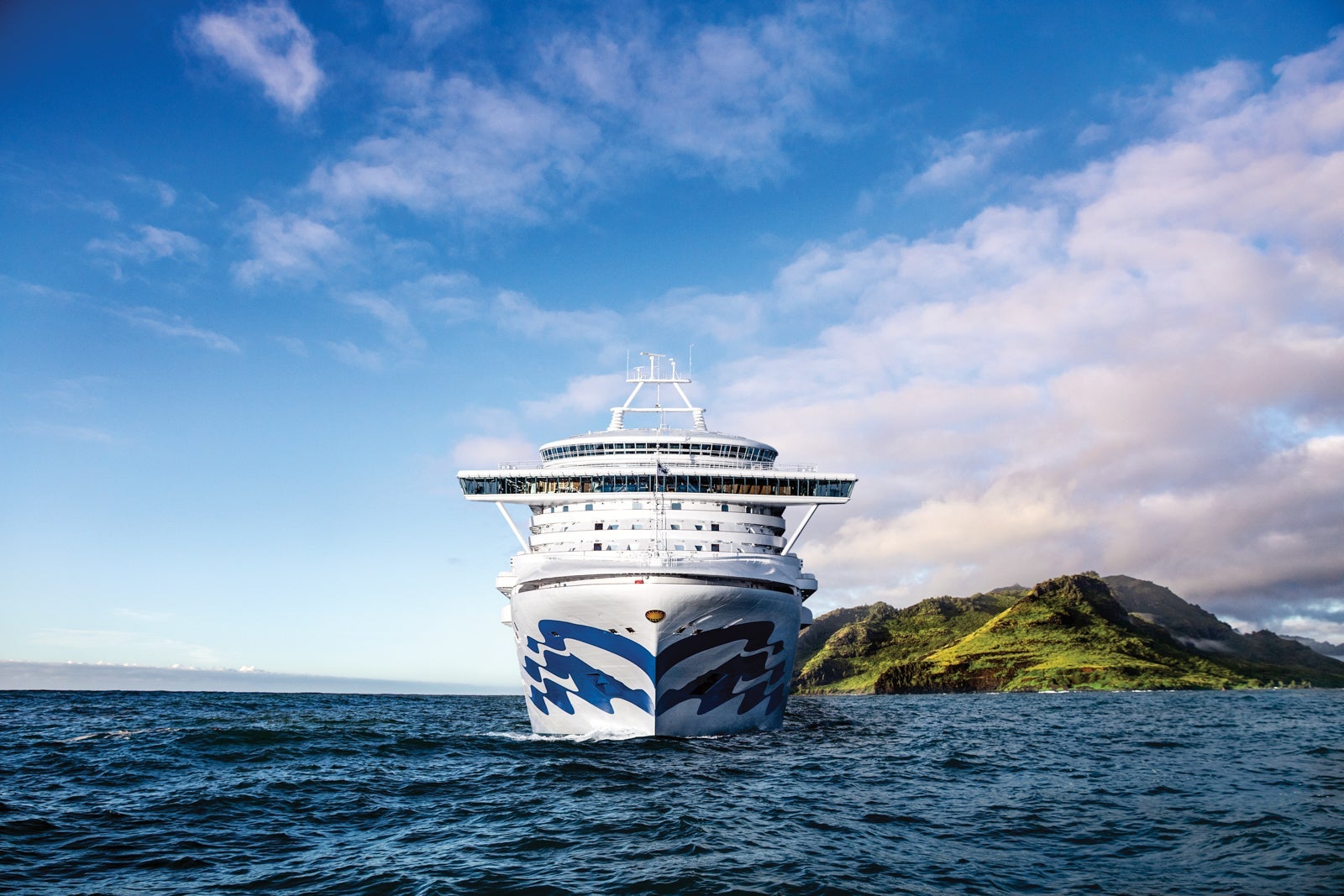
For cruise passengers, it's important to understand the cancellation or rebooking policy for the specific cruise line you will be traveling on.
Cruise lines might reroute to avoid Maui and affected areas. Per the terms of the cruise contract to which you consent before sailing, cruise lines do not owe you compensation if they alter your itinerary. If changes are made, you will be refunded for any shore excursions you booked through the cruise line that were to take place in the ports you're skipping. (Check with your tour provider directly if you've booked a third-party excursion.)
TPG's guide on what happens if a cruise gets canceled is the next place to refer to for guidance if you receive notice that your cruise is canceled.
A spokesperson for Norwegian Cruise Line shared this statement with TPG regarding Pride of America, its Hawaii-based cruise ship that sails weekly on a seven-night all-Hawaii cruise from Honolulu:
We are deeply saddened to hear about the wildfires currently impacting the town of Lahaina in Maui. We have a very special relationship with the people and islands of Hawaii as we sail to the beautiful state year-round. It is a magical destination and one that is highly sought out by our guests for its natural beauty, culture and unparalleled experiences. We are closely monitoring the situation in Maui, impacting the west side of the island, opposite the Kahului Harbor, where we call. At this time, there is no impact on our scheduled itineraries. As always, our top priority is the safety and security of our guests and crew. We will communicate further updates as appropriate.
Princess Cruises offered the following statement:
Given the severity of these fires and their significant strain on local resources, Emerald Princess will cancel her scheduled call to Maui (Lahaina) on Monday, August 14, and will instead call to Kona.
As we continue to monitor the situation, we are actively reviewing the itineraries of our upcoming voyages. If any adjustments need to be made to our published itineraries, we will advise guests and our Travel Advisor partners.
Related: What happens if my cruise line changes my itinerary or ship?
How to help support Maui's recovery efforts
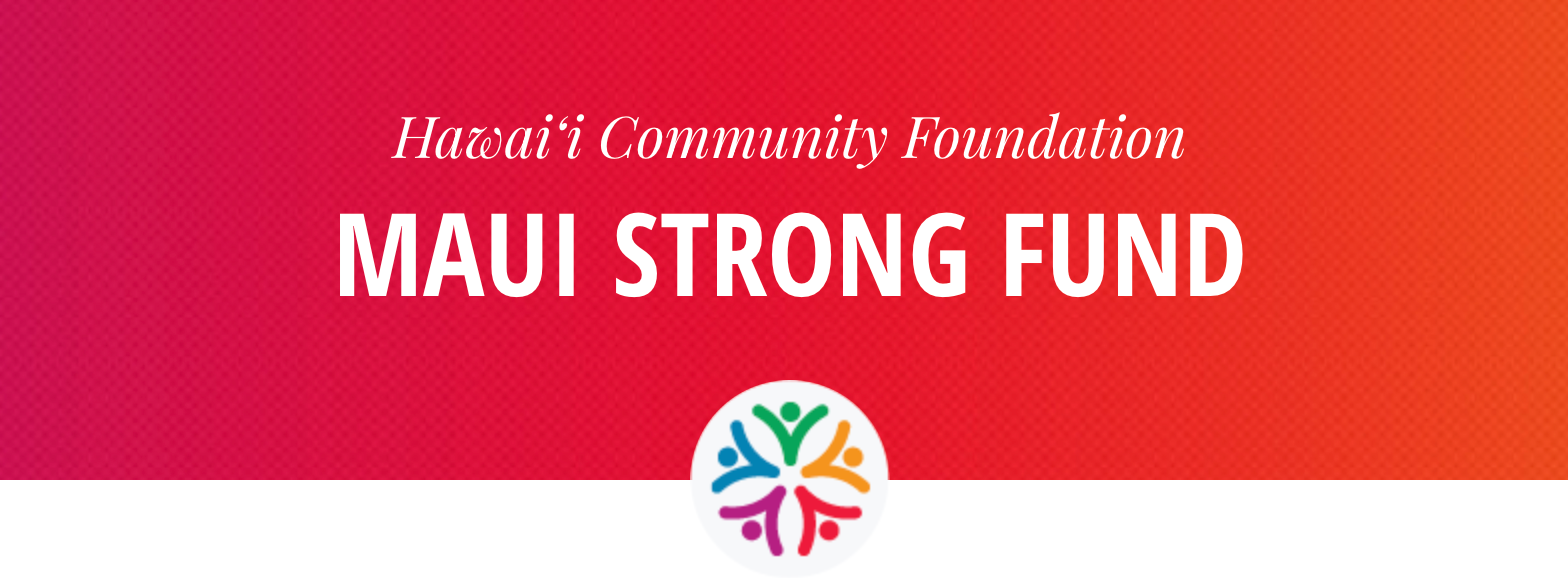
In collaboration with the Hawaii Community Foundation, state leaders and nonprofits, the Maui Strong Fund is accepting donations to assist with recovery and relief efforts.
"The Maui Strong Fund was created to provide community resilience with resources for disaster preparedness, response, and recovery," according to the Hawaii Community Foundation. "The fund is currently being used to support communities affected by the wildfires on Maui," with 100% of funds being distributed for community needs.
TPG and Lonely Planet have teamed up to donate $25,000 to the Maui Strong Fund, and if you also want to help, you can learn more about the organization and donate here.
Aloha United Way has established a Maui Fire Relief Fund on its website, and 100% of the proceeds are directed to Maui United Way. The organization's partner agencies — such as the Maui Food Bank, the American Red Cross and The Salvation Army — are distributing relief funds according to the community's most urgent needs.
Donating miles or cash via airlines
Hawaiian Airlines has updated its website with a message allowing loyalty members to donate HawaiianMiles, which will be used to transport volunteers and staff to Maui. Up to 30 million miles in donations will be matched by the airline for the month of August. You must log in to your account to donate.
American Airlines is also supporting the American Red Cross' disaster relief efforts, and American Airlines AAdvantage members can earn 10 AAdvantage bonus miles for every dollar donated to the Red Cross via its microsite. (Note there's a minimum donation amount of $25.)
Alaska Airlines has contributed 5 million miles to Kanu Hawaii and Maui Rapid Response, which are leading the efforts to relocate displaced Maui residents while they work to rebuild. Alaska Airlines will match the first 1 million miles donated by Mileage Plan members through Aug. 31. Donate miles to Kanu Hawaii.
Bottom line
This is a devastating, life-altering event for the people of Maui. The most important things to consider right now are the safety of everyone on Maui and efforts to help those affected by the disaster, both by considering tangible donations and allowing space and time for relief and recovery efforts.
Now that local government officials have released updated travel guidance, only West Maui communities are off-limits. Other areas of Maui are open and accepting guests.
Based on the updated information shared by the Hawaiian governor and the statement released by the Hawaii Tourism Authority, the economy would suffer without tourism in the Hawaiian Islands. They are encouraging travelers to consider visiting other areas of Maui, including Kahului, Wailuku, Kihei, Wailea, Makena, Paia and Hana.
Related reading:
- Hawaii declares emergency due to wildfires, discourages all nonessential travel to Maui
- Your flight is delayed or canceled: Here's what to do next
- 6 real-life strategies you can use when your flight is canceled or delayed
- 8 of the best credit cards for general travel purchases
- The best credit cards that offer trip cancellation and interruption insurance
Additional reporting by Caroline Tanner, Matt Moffitt, Erica Silverstein and Meghna Maharishi.
TPG featured card
at Capital One's secure site
Terms & restrictions apply. See rates & fees.
| 5X miles | Earn 5X miles on hotels, vacation rentals and rental cars booked through Capital One Travel |
| 2X miles | Earn unlimited 2X miles on every purchase, every day |
Pros
- Stellar welcome offer of 75,000 miles after spending $4,000 on purchases in the first three months from account opening. Plus, a $250 Capital One Travel credit to use in your first cardholder year upon account opening.
- You'll earn 2 miles per dollar on every purchase, which means you won't have to worry about memorizing bonus categories
- Rewards are versatile and can be redeemed for a statement credit or transferred to Capital One’s transfer partners
Cons
- Highest bonus-earning categories only on travel booked via Capital One Travel
- LIMITED-TIME OFFER: Enjoy $250 to use on Capital One Travel in your first cardholder year, plus earn 75,000 bonus miles once you spend $4,000 on purchases within the first 3 months from account opening - that’s equal to $1,000 in travel
- Earn unlimited 2X miles on every purchase, every day
- Earn 5X miles on hotels, vacation rentals and rental cars booked through Capital One Travel
- Miles won't expire for the life of the account and there's no limit to how many you can earn
- Receive up to a $120 credit for Global Entry or TSA PreCheck®
- Use your miles to get reimbursed for any travel purchase—or redeem by booking a trip through Capital One Travel
- Enjoy a $50 experience credit and other premium benefits with every hotel and vacation rental booked from the Lifestyle Collection
- Transfer your miles to your choice of 15+ travel loyalty programs
- Top rated mobile app


